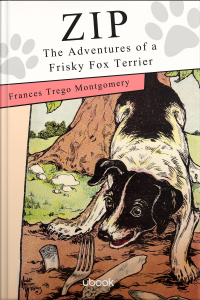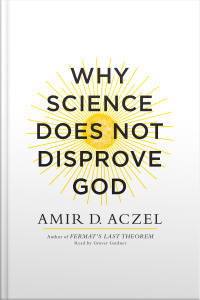50 Things That Made The Modern Economy
- Autor: Vários
- Narrador: Vários
- Editor: Podcast
- Duración: 17:53:49
- Mas informaciones
Informações:
Sinopsis
Tim Harford tells the fascinating stories of 50 inventions, ideas and innovations which have helped create the economic world.
Episodios
-
'Like' button
10/06/2019 Duración: 08minFacebook’s 'like' button is ubiquitous across the web. It’s how user data is collected, meaning adverts and newsfeeds can be targeted more effectively. Some say there’s nothing to worry about, but others point to the Cambridge Analytica scandal, suggesting how Facebook might shape our opinions. But is there something else we should be worried about? Approval from our friends and family can be addictive – so is the pursuit of “likes” on social media the reason we’re glued to our mobile phones? Tim Harford asks how should we manage our compulsions in this brave new online world.
-
Dwarf wheat
03/06/2019 Duración: 09minThe Population Bomb, published by Stanford biologist Paul Ehrlich in 1968, predicted that populations would grow more quickly than food supplies, causing mass starvation. Ehrlich was wrong: food supplies kept pace. And that’s largely due to the years Norman Borlaug spent growing different strains of wheat in Mexico. The 'green revolution' vastly increased yields of wheat, corn and rice. Yet, as Tim Harford describes, worries about overpopulation continue. The world’s population is still growing, and food yields are now increasing more slowly – partly due to environmental problems the green revolution itself made worse. Will new technologies come to the rescue?
-
Pornography
27/05/2019 Duración: 08minDid pornography help develop the internet? And has the internet made it more difficult for porn producers to make money? From photography, to cable television, to the video cassette recorder, there’s a theory that pornography users are some of the earliest adopters of new technology. Five in six images shared on the Usenet discussion group in the 1990s were pornographic, one study claimed. But, as Tim Hartford describes, the internet has made it easier for people to access pornography, but made it harder for anyone to make money from it.
-
Recycling
20/05/2019 Duración: 10minCould recycling to save money be the answer to saving the planet? For decades, wealthy countries have been shipping their waste to China for sorting and recycling. Now China is getting wealthier, it no longer wants to be a dumping ground. So could we take another look at the cold, hard cash that recycling generates? After all, the idea it’s a moral obligation is relatively new and, as Tim Harford says, for centuries people reused and recycled to save money, not the environment.
-
Spreadsheet
13/05/2019 Duración: 10minA grid on a computer screen took the world of accountancy by storm in the early 1980s, making many accounting tasks effortless. But should we consider this 'robot accountant' more carefully? As Tim Harford explains, the digital spreadsheet is a 40-year-old example of what automation could do to all of our jobs.
-
Brick
06/05/2019 Duración: 09min'I found Rome a city of bricks and left it a city of marble,' Caesar Augustus apparently boasted. If so, he wasn’t the only person to dismiss the humble brick. They’ve housed us for tens of thousands of years. They are all rather similar – small enough to fit into a human hand, and half as wide as they are long – and they are absolutely everywhere. Why, asks Tim Harford, are bricks still such an important building technology, how has brickmaking changed over the years, and will we ever see a robot bricklayer?
-
Mail order catalogue
29/04/2019 Duración: 08minSome say the Montgomery Ward shopping catalogue is one of the most influential books in US history. It transformed the middle-class way of life in the late 19th and early 20th Centuries. Ward struggled to get people to understand mail order shopping. His prices were so low, people thought there was a catch. Soon, though, this type of retail would improve roads and the postal service. Tim Harford describes how similar dynamics are changing today’s middle-classes in China, with the internet replacing the postal service and e-commerce the new mail order.
-
Bicycle
22/04/2019 Duración: 08minThe bicycle was to prove transformative. Cheaper than a horse, it freed women and young working class people to roam free. And the bike was the testing ground for countless improvements in manufacturing that would later lead to Henry Ford’s production lines. Tim Harford considers whether the bicycle has had its day, or whether it’s a technology whose best years lie ahead.
-
QWERTY
15/04/2019 Duración: 08minThe QWERTY keyboard layout has stood the test of time, from the clattering of early typewriters to the virtual keyboard on the screen of any smart-phone. Myths abound as to why keys are laid out this way – and whether there are much better alternatives languishing in obscurity. Tim Harford explains how this is a debate about far more than touch-typing: whether the QWERTY keyboard prospers because it works, or as an immovable relic of a commercial scramble in the late 19th century, is a question that affects how we should deal with the huge digital companies that now dominate our online experiences. Producer: Ben Crighton Editor: Richard Vadon (Image: qwerty keyboard, Credit: Getty Images)
-
Bonus 4: Woodpecker and black box
15/04/2019 Duración: 14minThe last bonus episode of our new podcast. For more, search for 30 Animals That Made Us Smarter and subscribe. Or find it here: www.bbcworldservice.com/30animals This one is about a bird’s remarkable skull and the quest to protect aeroplane flight recorders. #30Animals
-
Gyroscope
08/04/2019 Duración: 09minWhen the HMS Victory sank in 1744, with it went an inventor named John Serson and a device he’d dreamed up. He called it the “whirling speculum”, but we now know the basic idea as a gyroscope. Serson thought it could help sailors to navigate when they couldn’t see the horizon. Nowadays gyroscopes are tiny and, as Tim Harford describes, they are used to guide everything from submarines to satellites, from rovers on Mars to the phone in your pocket. They are also integral to drones – a technology that some believe could transform how we do our shopping. But for that, they’ll need to work in all weathers. Image: A gyroscope (Credit: Getty Images)
-
Bonus 3: Mosquito and surgical needle
08/04/2019 Duración: 15minEpisode 3 of our new podcast: the story of the blood-sucking pest and a pain-free surgical needle. Scientists have been studying the mosquito’s mouthparts. Could the dreaded ‘prick’ of a needle soon be a thing of the past? With Patrick Aryee. Find it here: www.bbcworldservice.com/30animals #30Animals
-
Cellophane
01/04/2019 Duración: 09minPlastic food packaging often seems obviously wasteful. But when Jacques Brandenberger invented cellophane, consumers loved it. It helped supermarkets go self-service, and it was so popular Cole Porter put it in a song lyric. Nowadays, people worry that plastic doesn’t get recycled enough but there are two sides to this story. Plastic packaging can protect food from being damaged in transit, and help it stay fresh for longer. Should we care more about plastic waste or food waste? As Tim Harford explains, it isn’t obvious and the issue is complicated enough that our choices at the checkout may accidentally do more harm than good. Producer: Ben Crighton Editor: Richard Vadon (Image: Noodles and cellophane, Credit: Getty Images)
-
Bonus 2: Octopus and camouflage
01/04/2019 Duración: 13minEpisode 2 of our new podcast, 30 Animals That Made Us Smarter. This one is about the eight-limbed master of disguise and surveillance technology. The colour and texture-changing abilities of the octopus are helping researchers with developments in camouflage. Can we make robots do the same thing? With Patrick Aryee. www.bbcworldservice.com/30animals #30Animals
-
Langstroth Hive
25/03/2019 Duración: 11minHumans have valued bees for their honey for thousands of years – and economists have long admired bees for their cooperative work ethic, too. But few of us, whether economists, honey-lovers, or both, have quite appreciated just how much the honey bee has been industrialised – and the simple yet radical invention that made that industrialisation possible. As Tim Harford explains, it is a sign of just how far the modern market economy has penetrated that it now reaches deep into the heart of the beehive. Producer: Ben Crighton Editor: Richard Vadon (Image: Bee keeper lifting shelf out of hive, Credit: MIlan Jovic/Getty Images)
-
Bonus: 30 Animals That Made Us Smarter
25/03/2019 Duración: 15minIntroducing our new podcast about innovation, technology and the animal kingdom. This is the whole of the first episode about how the kingfisher inspired the design of a train. The 500 series Shinkansen, also known as bullet train, is one of the fastest in the world. It is also quiet, but that was not always the case. This is the tale of Japanese engineer Eiji Nakatsu, the kingfisher, an owl, a penguin and biomimicry. www.bbcworldservice.com/30animals
-
Coming soon: Season two
17/03/2019 Duración: 01minFifty more things are on their way! Including the pencil, blockchain, bicycle, credit ratings and gambling. Tim Harford will return with season two on 25 March 2019. #50Things
-
Index Fund
17/01/2019 Duración: 09minWarren Buffett is the world’s most successful investor. In a letter he wrote to his wife, advising her how to invest after he dies, he offers some clear advice: put almost everything into “a very low-cost S&P 500 index fund”. Index funds passively track the market as a whole by buying a little of everything, rather than trying to beat the market with clever stock picks – the kind of clever stock picks that Warren Buffett himself has been making for more than half a century. Index funds now seem completely natural. But as recently as 1976 they didn’t exist. And, as Tim Harford explains, they have become very important indeed – and not only to Mrs Buffett. Editors: Richard Knight and Richard Vadon Producer: Ben Crighton (Image: Market graphs, Credit: Shutterstock)
-
Special Bonus: Santa Claus
17/12/2018 Duración: 10minWhy does Father Christmas wear red and white? It is not for the reason you may think. The story of Christmas and consumerism, with Tim Harford. And we’ll be back with season two of 50 Things in March 2019. Producer: Ben Crighton
-
Number 51
28/10/2017 Duración: 09minRevealed – the winning 51st Thing! What won the vote to be added to our list of 50? We asked for ideas for an extra “thing” that made the modern economy. We received hundreds of suggestions. Thousands of votes were cast on our shortlist of six. Now we have a winner. Discover what it is and why it is worthy of being Number 51. Presenter: Tim Harford Producer: Ben Crighton Editors: Richard Knight and Richard Vadon














